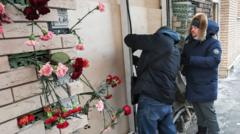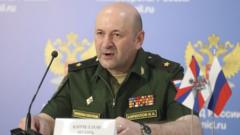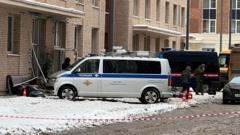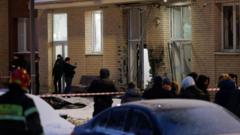The assassination of General Igor Kirillov highlights the escalating violence in Russia amidst the Ukraine conflict, raising questions about internal security and external implications.
Russian General Assassinated in Moscow Bombing: A Turning Point in the Conflict

Russian General Assassinated in Moscow Bombing: A Turning Point in the Conflict
Explosive device kills Igor Kirillov, head of chemical defense forces, amid ongoing tensions.
A Russian general, identified as Igor Kirillov, was killed in a bombing on a Moscow street on Tuesday, according to Russian officials. The explosive device, hidden in a scooter, detonated near a residential building on Ryazansky Avenue, resulting in the deaths of both Kirillov and an aide. This incident marks one of the most audacious assassinations to occur since the onset of Russia's full-scale invasion of Ukraine nearly three years ago.
Kirillov held the significant position of leading Russia's radioactive, chemical, and biological defense forces, making his assassination particularly striking given its implications for both military and national security within Russia. As tensions continue to mount within the country and amidst the protracted conflict with Ukraine, this event raises concerns about the safety of high-ranking officials as well as the state of internal security.
The Russian Investigative Committee, a law enforcement agency, has opened an inquiry into the incident. However, further details regarding potential suspects or implications for Russia's military strategies have not yet been disclosed, indicating that the investigation is still in its early stages. This assassination could not only impact Russia's military operations but also serve as a stark reminder of the vulnerabilities faced by leaders amidst a backdrop of ongoing warfare.
As details unfold, the broader repercussions of this incident on the Russia-Ukraine conflict and the internal dynamics of Russian power structures are yet to be fully understood.





















